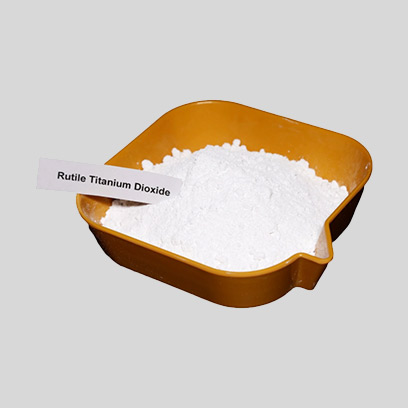
अक्टूबर . 30, 2024 19:48 Back to list
e number titanium dioxide factories
The Role of E Number Titanium Dioxide in Modern Manufacturing
Titanium dioxide, often referred to by its E number, E171, is a widely used additive in various industries, particularly in food, cosmetics, and paints. It serves primarily as a pigment and a whitening agent, celebrated for its ability to provide opacity and brightness. Understanding its role in manufacturing not only sheds light on its importance but also raises questions about its safety and environmental impact.
The Role of E Number Titanium Dioxide in Modern Manufacturing
The production of titanium dioxide involves two primary processes the sulfate process and the chloride process. The sulfate process starts with raw materials like ilmenite or titanium slag, which are treated with sulfuric acid. This method is prevalent for producing lower-quality grades of titanium dioxide. On the other hand, the chloride process is favored for producing higher purity titanium dioxide. It begins with the reaction of titanium ores with chlorine, forming titanium tetrachloride, which is subsequently oxidized to yield titanium dioxide. This method not only produces a cleaner product but is also more environmentally friendly due to lower waste generation.
e number titanium dioxide factories

The demand for titanium dioxide has been steadily increasing due to its applications beyond traditional sectors. For instance, it plays a significant role in the production of plastics, where it adds brightness and opacity, enhancing the aesthetic and protective qualities of the material. Moreover, the automotive and construction industries utilize titanium dioxide in coatings and paints, where it helps improve durability and color retention.
However, the use of titanium dioxide has come under scrutiny in recent years. Regulatory agencies in different parts of the world are assessing its safety, particularly in food products. Some studies have suggested potential health risks associated with the inhalation or ingestion of titanium dioxide nanoparticles. As a result, discussions are underway regarding possible restrictions on its use in certain applications, which may lead to the development of safer alternatives.
In response to these concerns, manufacturers are increasingly exploring sustainable practices and alternative formulations. The focus is shifting towards environmentally friendly production processes and the use of biodegradable materials that can achieve similar effects without the associated risks. This shift not only addresses safety concerns but also aligns with the growing global emphasis on sustainability and reducing the environmental footprint of industrial processes.
In conclusion, titanium dioxide, identified by its E number E171, plays a crucial role in various manufacturing industries, from food and cosmetics to paints and plastics. While its beneficial properties make it an invaluable additive, the ongoing discussions regarding its safety and environmental impact highlight the need for continued research and innovation. As industries evolve, the search for safer, more sustainable alternatives will be key to ensuring that the benefits of titanium dioxide can be enjoyed without compromising health or the planet.
-
R996 TiO2: High Performance Rutile Titanium Dioxide
NewsAug.06,2025
-
AI-Enhanced Titania Tio2 | High-Performance Solutions
NewsAug.04,2025
-
Titanium Dioxide Cost: High Purity TiO2 for Diverse Industrial Uses
NewsJul.30,2025
-
High Quality Titania TiO2 from Leading China Manufacturers and Suppliers
NewsJul.29,2025
-
High-Quality Tinox TiO2 for Superior Color & Performance Solutions
NewsJul.29,2025
-
High Quality Titania TiO2 from Leading China Supplier & Manufacturer
NewsJul.29,2025
